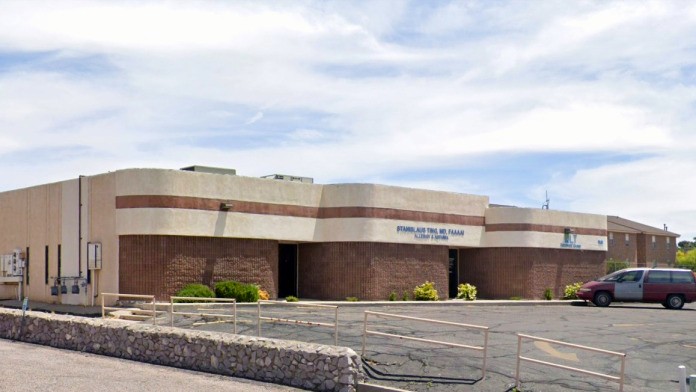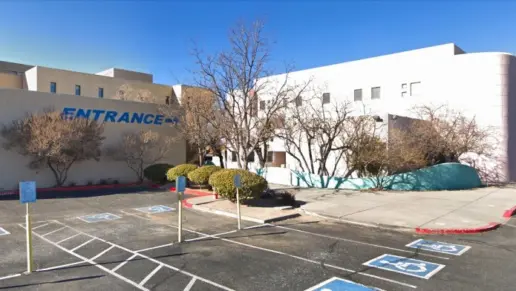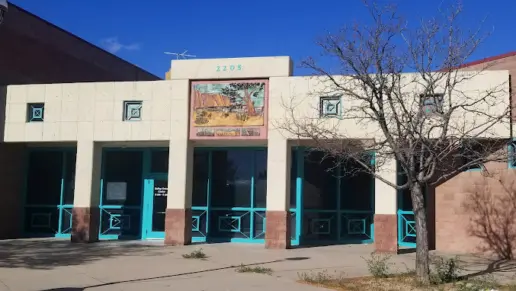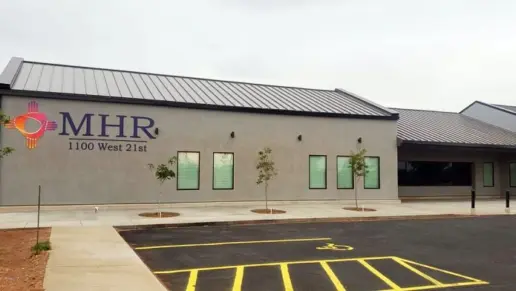Usually quick and efficient. Dr. Taylor is AMAZING ; very intelligent and well spoken. Easy to talk to.
About ALT Recovery Group
ALT Recovery Group in Las Cruces, New Mexico, is an opioid addiction treatment facility. Their mission is to provide you compassionate care and evidence based treatments. Staff members will help you achieve long lasting recovery through medication assisted treatment and other support services.
Other helpful services that are provided at this facility are discharge planning, methadone tapering and guest dosing. The core values this clinic strives to follow with all of its clients are respect, collaboration, compassion and excellence.
Methadone is used to help clients reduce their withdrawal symptoms and cravings. The medical staff will supervise you as the dosage is administered. The methadone maintenance plan is tailored to each patient’s specific needs.
You’ll receive psychological and medical support to address other aspects of addiction while you’re receiving this treatment with regular follow ups and adjustments. The medical professionals on staff specialize in treating addictions to fentanyl. Some holistic treatments you’ll receive include life skills training and family involvement.
Sometimes, you may not be able to receive your dosages at your home clinic. The guest dosing service allows clients to receive their dosage at a different clinic while traveling. This allows you to maintain your treatment without interruption.
Over time, you may eventually want to taper off of methadone. Under medical supervision, ATL Recovery Group will gradually reduce your methadone dosage. The expert team will make sure the process is carefully managed, so you have minimal withdrawal symptoms.
An additional helpful service provided at this facility is the discharge planning service. The service is designed to ensure you have continued support and care after you’ve completed MAT. The team will work with you to develop a discharge plan that includes follow up appointments, community resources, ongoing support and relapse prevention.
ALT Recovery Group is conveniently located off I-25. While you’re in the area, you can check out the New Mexico Farm & Ranch Heritage Museum and the New Mexico State University Art Museum.
Latest Reviews
Rehab Score
Gallery

Location
Other Forms of Payment
Self-pay involves paying for treatment out of your own pocket. You can use savings or credit, get a personal loan, or receive help from family and friends to fund your treatment. If you don't have insurance or your insurance plan doesn't cover a specific program, self-pay can help ensure you still get the care you need.
Private insurance refers to any kind of healthcare coverage that isn't from the state or federal government. This includes individual and family plans offered by an employer or purchased from the Insurance Marketplace. Every plan will have different requirements and out of pocket costs so be sure to get the full details before you start treatment.
Medicaid is a state based program that helps lower-income individuals and families pay for healthcare. Medicaid covers addiction treatment so those enrolled can use their coverage to pay for rehab. When a program accepts Medicaid the client often pays very little or nothing out of their own pocket.
Addiction Treatments
Levels of Care
Treatments
Many of those suffering from addiction also suffer from mental or emotional illnesses like schizophrenia, bipolar disorder, depression, or anxiety disorders. Rehab and other substance abuse facilities treating those with a dual diagnosis or co-occurring disorder administer psychiatric treatment to address the person's mental health issue in addition to drug and alcohol rehabilitation.
Opioid rehabs specialize in supporting those recovering from opioid addiction. They treat those suffering from addiction to illegal opioids like heroin, as well as prescription drugs like oxycodone. These centers typically combine both physical as well as mental and emotional support to help stop addiction. Physical support often includes medical detox and subsequent medical support (including medication), and mental support includes in-depth therapy to address the underlying causes of addiction.
Substance rehabs focus on helping individuals recover from substance abuse, including alcohol and drug addiction (both illegal and prescription drugs). They often include the opportunity to engage in both individual as well as group therapy.
Programs


Clinical Services
Research clearly demonstrates that recovery is far more successful and sustainable when loved ones like family members participate in rehab and substance abuse treatment. Genetic factors may be at play when it comes to drug and alcohol addiction, as well as mental health issues. Family dynamics often play a critical role in addiction triggers, and if properly educated, family members can be a strong source of support when it comes to rehabilitation.
Group therapy is any therapeutic work that happens in a group (not one-on-one). There are a number of different group therapy modalities, including support groups, experiential therapy, psycho-education, and more. Group therapy involves treatment as well as processing interaction between group members.
In individual therapy, a patient meets one-on-one with a trained psychologist or counselor. Therapy is a pivotal part of effective substance abuse treatment, as it often covers root causes of addiction, including challenges faced by the patient in their social, family, and work/school life.
Trauma therapy addresses traumatic incidents from a client's past that are likely affecting their present-day experience. Trauma is often one of the primary triggers and potential causes of addiction, and can stem from child sexual abuse, domestic violence, having a parent with a mental illness, losing one or both parents at a young age, teenage or adult sexual assault, or any number of other factors. The purpose of trauma therapy is to allow a patient to process trauma and move through and past it, with the help of trained and compassionate mental health professionals.
Amenities
-
Private Setting
Accreditations

The Commission on Accreditation of Rehabilitation Facilities (CARF) is a non-profit organization that specifically accredits rehab organizations. Founded in 1966, CARF's, mission is to help service providers like rehab facilities maintain high standards of care.
CARF Accreditation: Yes

The Substance Abuse and Mental Health Services Administration (SAMHSA) is a branch of the U.S. Department of Health and Human Services. Established in 1992 by congress, SAMHSA's mission is to reduce the impact of substance abuse and mental illness on American's communities.
SAMHSA Listed: Yes
Contact Information
1141 Mall Drive
Suite E
Las Cruces, NM 88011


